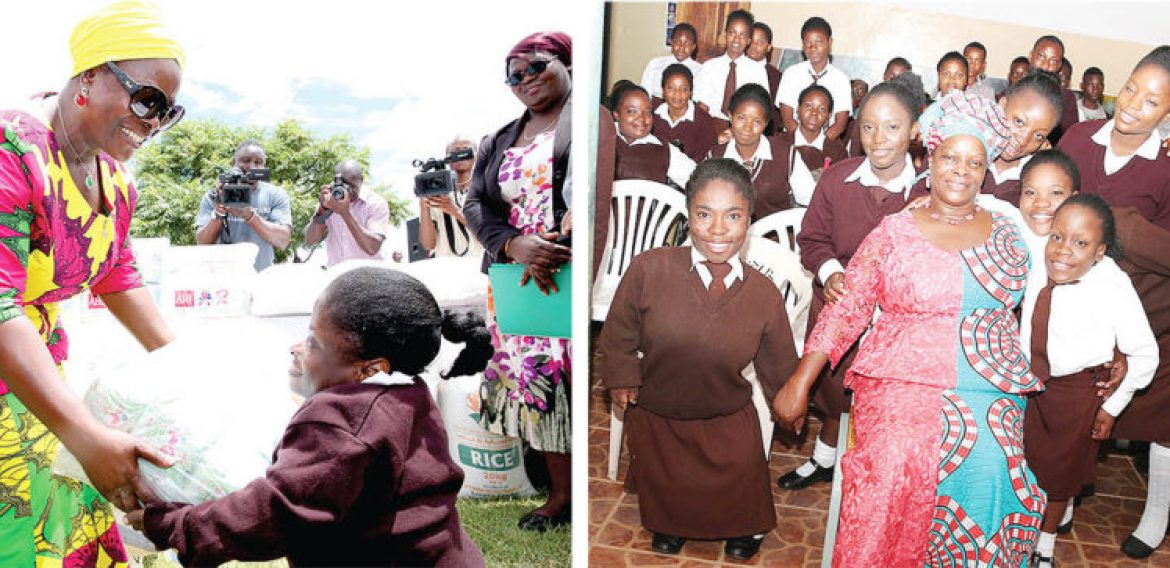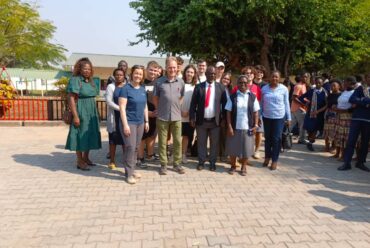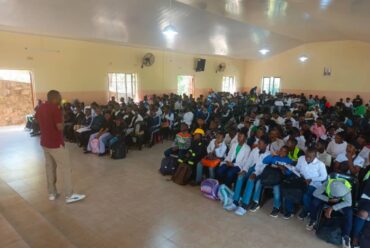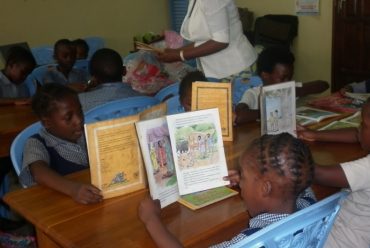Children with special needs deserve better
PROFESSOR Stephen Hawking, a great theoretical physician, who died recently, defied all odds as a person with disabilities.
In his preface of the 2011 First World report on disability, he wrote that: “We have a moral duty to remove the barriers of participation, invest sufficient funding and expertise to unlock the vast potential of people with disabilities.”
This is why governments throughout the world can no longer overlook the millions of people with disabilities who are denied access to health, rehabilitation, support, education and employment.
Statistics from the World Health Organisation (WHO) 2011 First World Report on disabilities show that more than one billion people in the world are living with one form of disability, and nearly 200 million of these experience considerable difficulties in functioning.
Similarly, the United Nations International Children’s Fund (UNICEF) has estimated that there are 150 million children with disabilities in the developing world, of which 80 percent of them are living in rural communities.
In Zambia, Government has made great strides towards helping people with special needs to lead productive lives by introducing policies and laws to remove barriers and open new paths of opportunities for them. One such law is the Persons with Disabilities Act of 2012.
First Lady Esther Lungu described the achievements by Government under the leadership of President Edgar Lungu as a great service to children, families and the country because it guarantees them a brighter future.
“This Act will ensure that there is a place for persons with disabilities in our country. They count and can contribute a lot to our developmental agenda,” Mrs Lungu said during her visit at Dagama School for Physically Disabled Children in Luanshya recently.
The First Lady says barriers of bureaucracy should not come in the way of people who provide services to children with special needs. For this reason, she urged the Ministry of General Education to prioritise the needs of children requiring special education.
The ministries of General and Higher Education need to ensure that there is adequate specialised training for teachers, flexible curriculum, specialised teaching, more individual attention and open doors of opportunity for children with special needs because they deserve a better future.
To accelerate the removal of barriers which prevent affected children from participating in community and national activities, Mrs Lungu urged all stakeholders to play their roles.
She said interested parties must come up with strategies of empowering the disabled, especially children, so that they can live productive lives and contribute to their communities.
“All stakeholders must communicate, let’s come up with new ideas, services. Let’s be committed to children with special needs and let’s push for more funding so that our commitment, as a nation, to persons with disabilities is fulfilled,” Mrs Lungu said.
She saluted Dagama School and other stakeholders for their passion and support rendered to children with special needs and providing them an opportunity to live better lives.
She commended the Roman Catholic Church for pioneering the noble work of taking care of children with special needs through many institutions countrywide.
During her visit to Dagama School for Physically Disabled Children in Luanshya, Mrs Lungu took time to interact with the children.
She went round the school, checking on the school garden, girls and boys’ dormitories and physiotherapy sessions. Mrs Lungu observed lessons for grades one, three, nine and 10 pupils and also had an interactive meeting with the learners.
Addressing the pupils, she said the Esther Lungu Foundation Trust has joined the arena of people who are committed to taking care of the needs of people with disabilities.
On behalf of her foundation, Mrs Lungu donated six wheelchairs, 50 bags of mealie meal, three bales of sugar, 200kg of rice, 100 litres of cooking oil, sanitary towels, 150 blankets and groceries.
Mrs Lungu also handed over K10,000 cash and textbooks for grades one to eight.
She ended her programme in Luanshya on a lighter note by launching the Dagama football cup, a floating trophy for the Copperbelt which will be organised in liaison with the Olympic Youth Development Centre.
Mercy Chola, a pupil at Dagama School, thanked the First Lady for visiting her school.
“This is a rare opportunity and privilege to have you at our school. We thank you sincerely to have interacted with us. The donation will go a long way in addressing some challenges that we face. Most of us come from vulnerable families,” she said.






